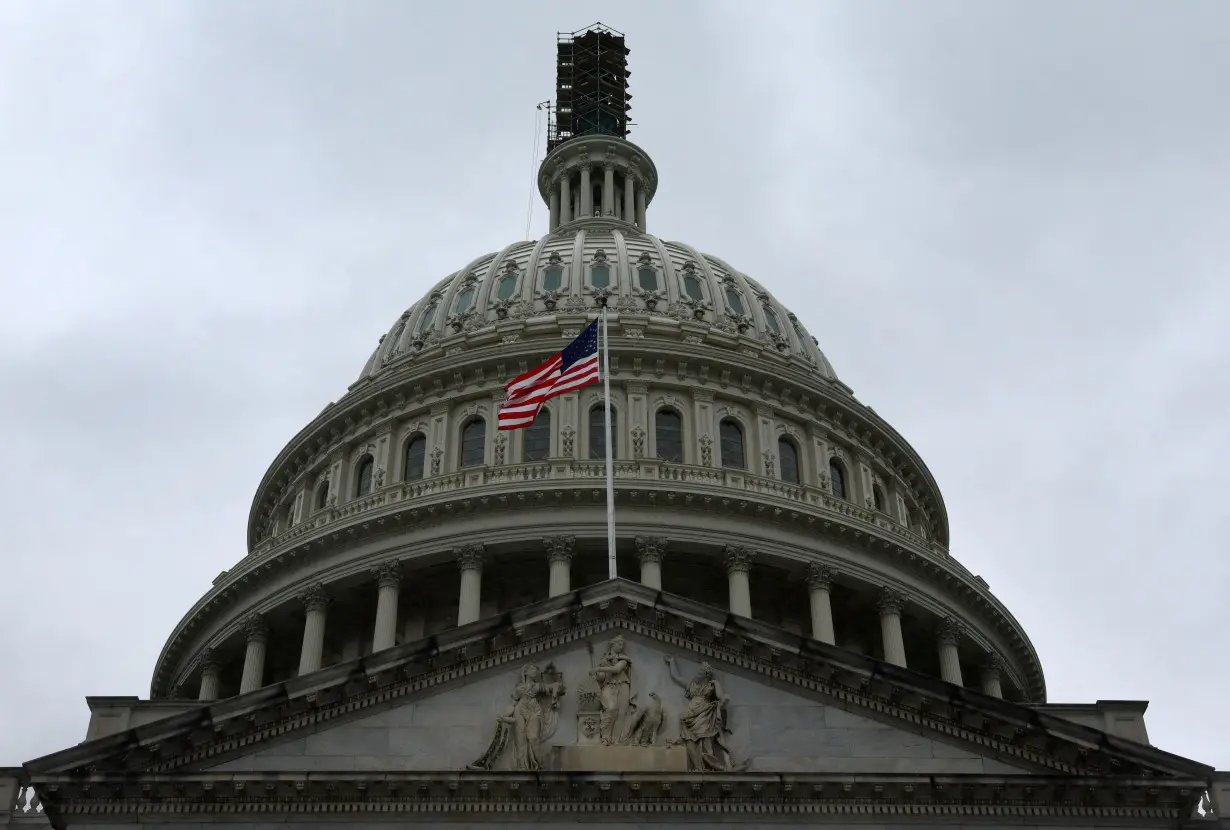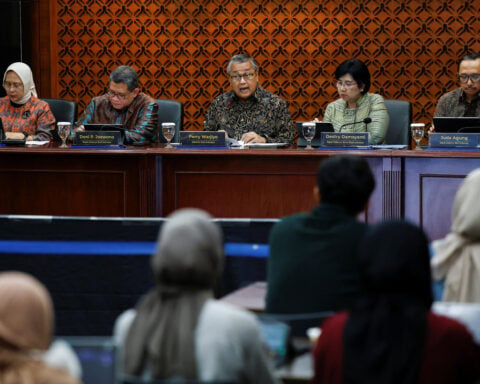By David Morgan and Jason Lange
WASHINGTON (Reuters) - As the U.S. Congress eyes another looming partial government shutdown deadline in less than two weeks, it also faces a question: Whether lawmakers, and particularly a small but powerful band of hardline Republicans, are capable of compromise.
House of Representatives Republicans say their slim 221-212 majority will spend the coming week trying to pass full-year spending bills that have no chance of clearing the Democratic-majority Senate, even as jitters about the Nov. 17 shutdown deadline spread among their own members.
The Senate, which Democrats control 51-49, has also been struggling to pass bills funding the government through Sept. 30, adding to calls for a stopgap "continuing resolution" to avert a shutdown.
"We shouldn't be trying to jam each other on this. We've established that the majority of each party wants to keep the government running," said Republican Representative Tom Cole, who runs a powerful committee that serves as gatekeeper on new legislation.
House Democratic leader Hakeem Jeffries sounded a similar note. "Let's be clear - the only way forward is in a bipartisan way to pass a continuing resolution at the fiscal 2023 (funding) level," Jeffries told reporters. Data shows why lawmakers have such a hard time compromising. Members of Congress are more polarized than ever before, according to a Reuters analysis of voteview.com, a tool developed by political scientists that measures partisanship.
Voteview.com data shows little overlap between the voting records of Republicans and Democrats, reducing the chances of a bipartisan compromise needed to move funding legislation through the Republican-majority House and Democratic-led Senate.
Further complicating matters is a Republican majority so narrow that House Speaker Mike Johnson can afford to lose no more than four party votes on legislation Democrats oppose. That has elevated the power of the ultraconservative House Freedom Caucus and engulfed Republicans this year in a perpetual political civil war.
"We've never been in anything like this," said Jeff Lewis, a political scientist at the University of California, Los Angeles who manages voteview.com. "There's no strategy for anybody in this circumstance to try to get votes from the Democrats."
Johnson, who succeeded Republican Kevin McCarthy as speaker last month after three weeks of party infighting over the job, has sent mixed signals about passing a continuing resolution, or "CR," that would fund the government to Jan. 15, with the option of extending further to April if more time is needed to get full-year funding into place.
"He hasn't decided how that would be structured - if that would happen," House Majority Leader Steve Scalise, the No. 2 Republican, told reporters in the U.S. Capitol on Friday.
Johnson told Fox News Sunday that he and his advisers worked through the weekend on "a stopgap measure" that "would allow us time to continue the appropriations process."
Senior Republicans in both chambers believe a CR is unavoidable. But for now, the new speaker needs to show hardline Republicans his commitment to their demands that the House pass the full dozen 2024 appropriations bills individually before shifting to a CR.
Hardliners, some of whom orchestrated McCarthy's ouster for passing a CR with Democratic support, are pushing for spending cuts and tighter border security as conditions they would accept in a new stopgap measure.
The House passed two of three Republican spending bills on their agenda last week, covering congressional operations and the environment. That brought their total to seven of the 12 needed, while the Senate has passed three with bipartisan support.
"Clearly, commitments have been made and the momentum has to be maintained," Republican Representative Frank Lucas told Reuters. "But we are getting close to Nov. 17. An extension is necessary. We will test the waters of rationality (this) week."
(Reporting by Jason Lange and David Morgan; additional reporting by Richard Cowan; Editing by Scott Malone and Jonathan Oatis)

 Italy, Albania, UAE sign deal for energy subsea interconnection
Italy, Albania, UAE sign deal for energy subsea interconnection
 European shares advance as bond yields ease; soft inflation powers UK stocks
European shares advance as bond yields ease; soft inflation powers UK stocks
 Bank Indonesia delivers surprise rate cut to support growth
Bank Indonesia delivers surprise rate cut to support growth
 Novak Djokovic breaks a tie with Roger Federer for the most Grand Slam matches in tennis history
Novak Djokovic breaks a tie with Roger Federer for the most Grand Slam matches in tennis history
 China's RedNote: what you need to know about the app TikTok users are flocking to
China's RedNote: what you need to know about the app TikTok users are flocking to
 British author Neil Gaiman denies ever engaging in non-consensual sex as more accusers come forward
British author Neil Gaiman denies ever engaging in non-consensual sex as more accusers come forward








